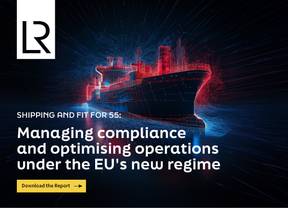Classic Boat Updated with Modern Hybrid Propulsion System
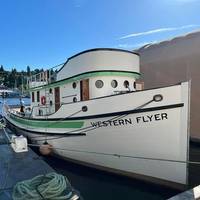
A classic 1930s-built boat with a storied history has been updated with a hybrid propulsion system from Transfluid.Originally built in 1937 in Tacoma, Wash., the Western Flyer is most well known as the boat chartered by John Steinbeck in his 1940 expedition to the Gulf of California chronicled in The Log from the Sea of Cortez. Called “the most famous research vessel to ever have sailed”, the Flyer is a 77ft wooden fishing vessel that has been restored in Port Townsend, Wash. by the Western Flyer Foundation.The boat was recommissioned as a fishing vessel, and a showpiece for green technology.
MBARI to Transfer Research Vessel to Florida Institute of Oceanography
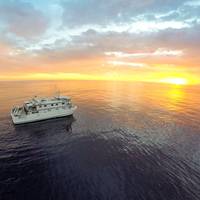
MBARI revealed plans to grant its 25-year-old research vessel Western Flyer to the University of South Florida where the vessel will begin a new life as a sailing classroom for the university's Florida Institute of Oceanography (FIO).“We’re thrilled the Western Flyer will be sailing on to an exciting new chapter at the Florida Institute of Oceanography,” said MBARI President and CEO Chris Scholin. “The ocean plays a vital role in sustaining life on Earth. With the Western Flyer…
Sea Shepherd Expands Its Fleet
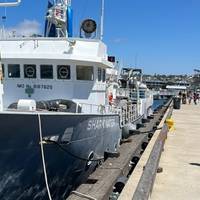
Sea Shepherd Conservation Society announced it has acquired the MV Sharkwater, a storied vessel with a long history of conservation. SSCS took possession of the ship 12 miles off-shore of San Diego, on July 8, 2022.Built in 1997, the 48 x 7.4 meter ship will be the largest in the SSCS fleet, weighing in at 287 gross tons. Throughout August and September it will be refitted for Sea Shepherd’s missions in protecting the vaquita in the Upper Gulf of California and in fighting against IUU in the Pacific Ocean.
Mexico: New Fishing Regulation Endanger Near-extinct Porpoise Species
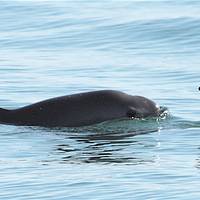
The Mexican government’s decision to loosen its policy of keeping a fishing-free zone around a protected area in the Gulf of California region was a “setback” to keeping alive a near-extinct porpoise species, a conservation group said on Thursday.There are thought to be only between six and 20 vaquita porpoises left and the species is on the brink of extinction as more die each year in fishing nets than are being born, biologists say.Mexico had previously banned boats entering the species’ last sanctuary off the coast of Mexico, known as the “zero-tolerance zone”.
Glosten to Design, Freire Shipyard to Build MBARI's New Research Vessel
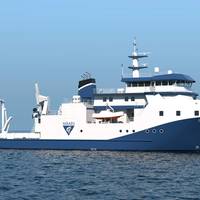
The Monterey Bay Aquarium Research Institute (MBARI) is embarking on a new chapter in its ocean research with the construction of a state-of-the-art ship, a vessel named in honor of MBARI’s founder, David Packard. The R/V David Packard will be capable of accommodating diverse expeditions in Monterey Bay and beyond to further the institute’s mission to explore and understand our changing ocean.It will measure 50 x 12.8 m with a 3.7 m draft, designed to support a crew of 12, plus a science crew of 18.
Activists Protecting Rare Mexican Porpoise Come Under Attack
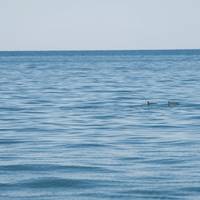
A boat from a conservation group carrying Mexican government inspectors was attacked while monitoring a near-extinct porpoise species in a protected zone of Mexico’s Gulf of California, Mexico’s environmental prosecutor Profepa said.The attack occurred on Tuesday when a boat operated by conservation group Sea Shepherd encountered two small vessels engaged in illegal fishing in the area. Fishermen threw Molotov cocktails as part of the attack.In early February, Sea Shepherd reported…
Jones Act Tanker Market to Grow with Oil Production Boom
The Jones Act has been blamed for everything from higher prices of goods and oil to a shortage of rock salt supply in the Northeast during the past winter, but the 94-year-old U.S. federal statute governing the U.S. coastal shipping trades will not be going away anytime soon. The solid status of this deeply entrenched U.S. federal maritime law is reflected in heavy investments by oil, logistics and shipping companies in this lucrative domestic shipping sector. Last December, Kinder Morgan spent nearly $1 billion in its acquisition of its first Jones Act tanker assets when it bought American Petroleum Tankers and State Class Tankers. The market outlook for U.S.- flagged oil tankers remains bright, and some companies are banking on that.
Deep Ocean Trash Dump Located
Researchers at the Monterey Bay Aquarium Research Institute (MBARI) find that trash is not only cluttering beaches, but is accumulating deep sea, notably in the Monterey Canyon. Surprisingly large amounts of discarded trash end up in the ocean. Plastic bags, aluminum cans, and fishing debris not only clutter our beaches, but accumulate in open-ocean areas such as the 'Great Pacific Garbage Patch' reports ScienceDaily. In total, the researchers counted over 1,500 observations of deep-sea debris, at dive sites from Vancouver Island to the Gulf of California, and as far west as the Hawaiian Islands. In the recent paper, the researchers focused on seafloor debris in and around Monterey Bay -- an area in which MBARI conducts over 200 research dives a year.
NSRP Elects New Chair and Vice Chairman
The Environmental Technology Panel of the National Shipbuilding Research Program (NSRP) has elected Jennifer Parker, from Bath Iron Works, as chairman and Frank (“Hogie”) Thorn, from Newport News Shipbuilding, to the position of vice-chairman. Parker replaces Mike Chee, of National Steel & Shipbuilding Company (NASSCO), who held the panel’s chairman position for the pervious ten years. Thorn replaces Parker as the panel’s vice chairman. The Environmental Technology Panel of the NSRP provides a forum for shipyard environmental personnel to seek solutions to shipyard environmental problems and promotes the advancement of environmental technology to meet the shipyard’s needs. The panel meets three times a year in various U.S.
Ballast Water Management Changes Proposed
The California State Lands Commission (SLC) issued a Notice of Proposed Regulatory Action relating to management of ballast water on ships of 300 gross registered tons or more arriving in California after having taken on ballast water from places within the Pacific Coast Region. The Pacific Coast Region is defined as coastal waters on the Pacific Coast of North America east of 154°W longitude and north of 25°N latitude, exclusive of the Gulf of California. While several alternatives are provided for, the major ballast water management measure proposed is the exchange of the ship’s ballast water in near-coastal waters (waters that are more than 50 nautical miles from land and at least 200 meters deep). Under the proposal, the SLC would assess a per voyage fee of $500.


